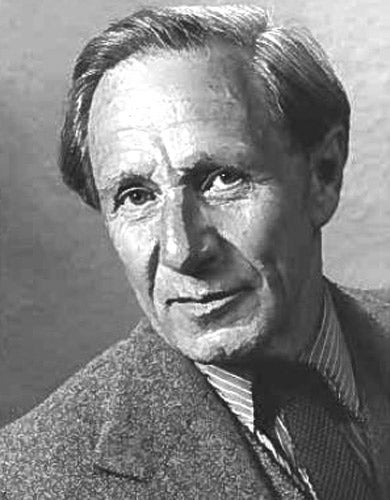Sir Laurence Pumphrey: Diplomat decorated for wartime bravery who later served as Ambassador to Pakistan

Your support helps us to tell the story
From reproductive rights to climate change to Big Tech, The Independent is on the ground when the story is developing. Whether it's investigating the financials of Elon Musk's pro-Trump PAC or producing our latest documentary, 'The A Word', which shines a light on the American women fighting for reproductive rights, we know how important it is to parse out the facts from the messaging.
At such a critical moment in US history, we need reporters on the ground. Your donation allows us to keep sending journalists to speak to both sides of the story.
The Independent is trusted by Americans across the entire political spectrum. And unlike many other quality news outlets, we choose not to lock Americans out of our reporting and analysis with paywalls. We believe quality journalism should be available to everyone, paid for by those who can afford it.
Your support makes all the difference.Laurie Pumphrey, who died at his home in Northumberland on 23 December aged 93, was a star entrant into the diplomatic service in the first post-war reconstruction exam in 1945.
In one of those games played at the Foreign Office Selection Board (FOSB) at Stoke D'Abernon to seek the ministers of an imaginary island, Pumphrey was interviewed by a fellow competitor. Where had he been to school? "Winchester." Scholar? "Yes." Oxbridge? "Yes, New College." Scholar? "Yes." Reading? "Mods and Greats though I didn't finish Greats because of the War." First in Mods? "Yes." And what about your war? "I was commissioned into my county regiment – the Northumberland Hussars – but I was taken prisoner." What did you do in captivity? "I learnt Russian." Clearly, this man was to be Prime Minister of the imaginary island.
However, Pumphrey had been economical with the truth. In fact, he had a heroic war. After fighting in the Western Desert, the Northumberland Hussars, as part of the 1st Armoured Brigade, were sent to Greece to try to help hold the German invasion. They were not successful, and after retreating through Athens they eventually landed in Crete. Pumphrey was awarded the Greek Military Cross for his bravery in battle. The Germans launched the biggest paratroop and glider offensive against Crete yet seen, and many of the Northumberland Hussars went "in the bag", including Pumphrey.
Eventually he found himself at Oflag VII-B, Eichstatt in Bavaria, and there he met Douglas Hamilton-Baillie, one of the greatest escapers of them all. With 62 others, Pumphrey escaped through a tunnel engineered by Hamilton-Baillie. But they did not manage a "home run"; on capture they were both sent to Colditz. There, although many escape plans were hatched, Pumphrey and Hamilton-Baillie saw out the rest of the war. Among other things they did to occupy the hours they played cards, using photographs of relatives to make up the pack. One of the "cards" used was a photo of Lettice, Laurie's sister. Following repatriation at the end of the war, Hamilton-Baillie attended Pumphrey's wedding to Jean, daughter of Sir Walter Riddell 12th Bt., at which he met the real Lettice. Two years later, Pumphrey attended the wedding of his fellow escapee and his sister.
Pumphrey's career in the Foreign Office began well and, as a high-flyer, he was seconded to No 10 when Clement Attlee was Prime Minister in 1948- 51.
But a cloud appeared in late 1957. Pumphrey, on his daily commute to Waterloo, overheard a girl and a man gossiping in a way that made him feel that there had been a leak of the news of the rise in the bank rate – to seven per cent – which had taken place two days before. He reported this. It became a major incident, resulting in a leak enquiry and considerable political debate. The result was The Bank Rate Tribunal, set up under the chairmanship of the Lord Chancellor, Lord Manningham-Buller. The Tribunal came to the conclusion that no improprieties had taken place.
Pumphrey's career did not suffer from this event and he served with distinction in Singapore, Belgrade, Nairobi and Zambia before becoming high commissioner and then ambassador to Pakistan. He was awarded the CMG in 1963 and advanced to KCMG in 1973.
Pumphrey retired in 1976 at the mandatory age of 60 to his beloved Northumberland and there, for the next 33 years, did good work locally. He became chairman of the National Trust in Northumberland. He also bought and then donated a Colditz cap to the Imperial War Museum.
He kept up his intellectual interests to the end. On the night before he died he was found reading War and Peace in Russian, and on the morning of his death, reading the New Testament in the original Greek.
Patrick Shovelton
John Laurence Pumphrey, diplomat: born 22 July 1916; High Commissioner and then Ambassador to Pakistan, 1971-76; CMG 1963, KCMG 1973; married 1945 Jean Riddell (four sons, one daughter); died Northumberland 23 December 2009.
Join our commenting forum
Join thought-provoking conversations, follow other Independent readers and see their replies
Comments